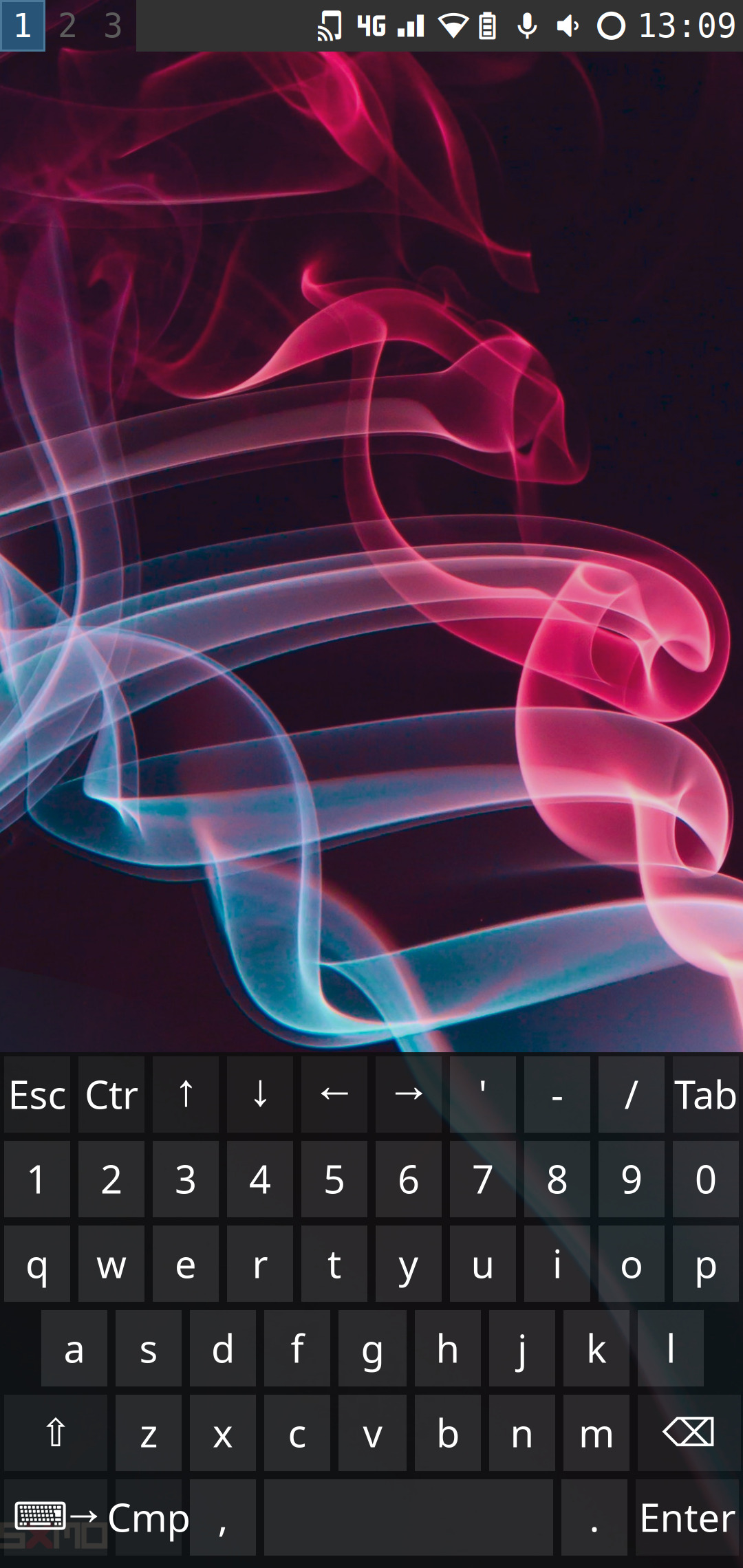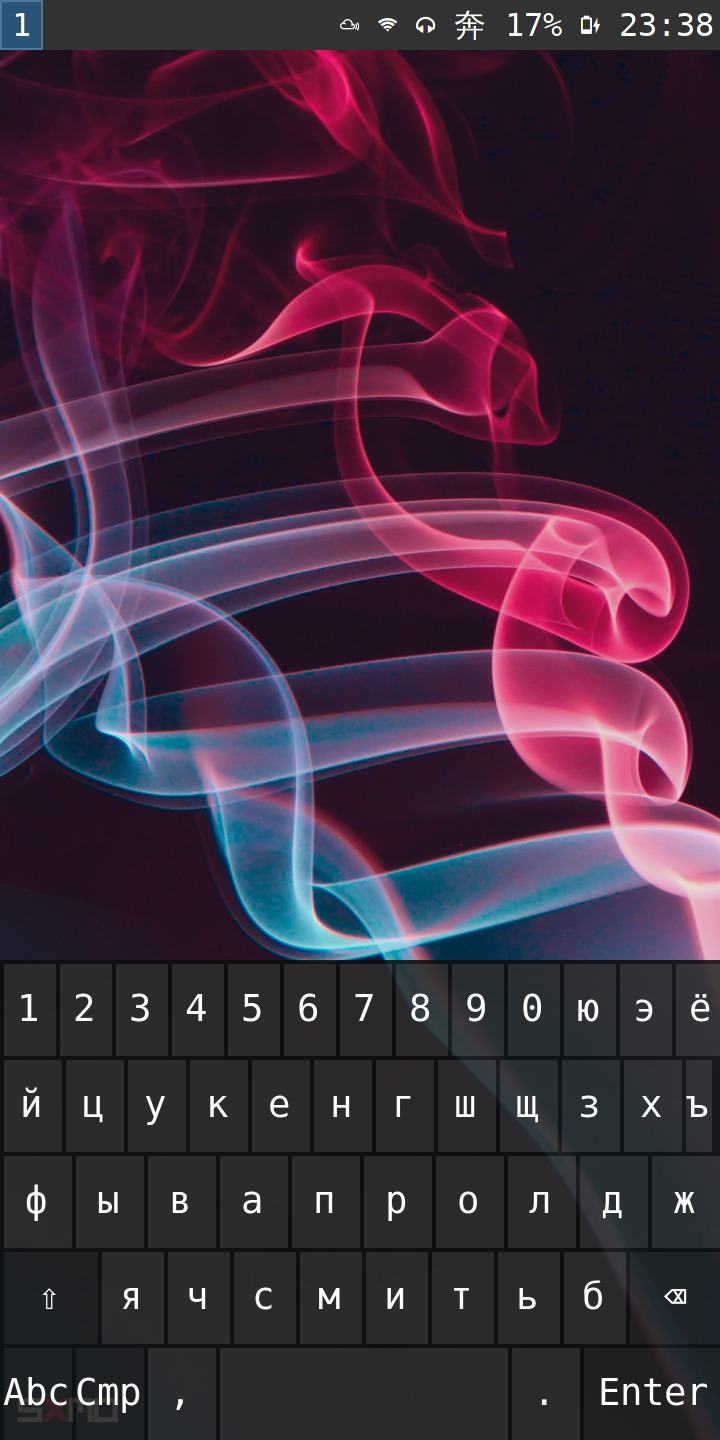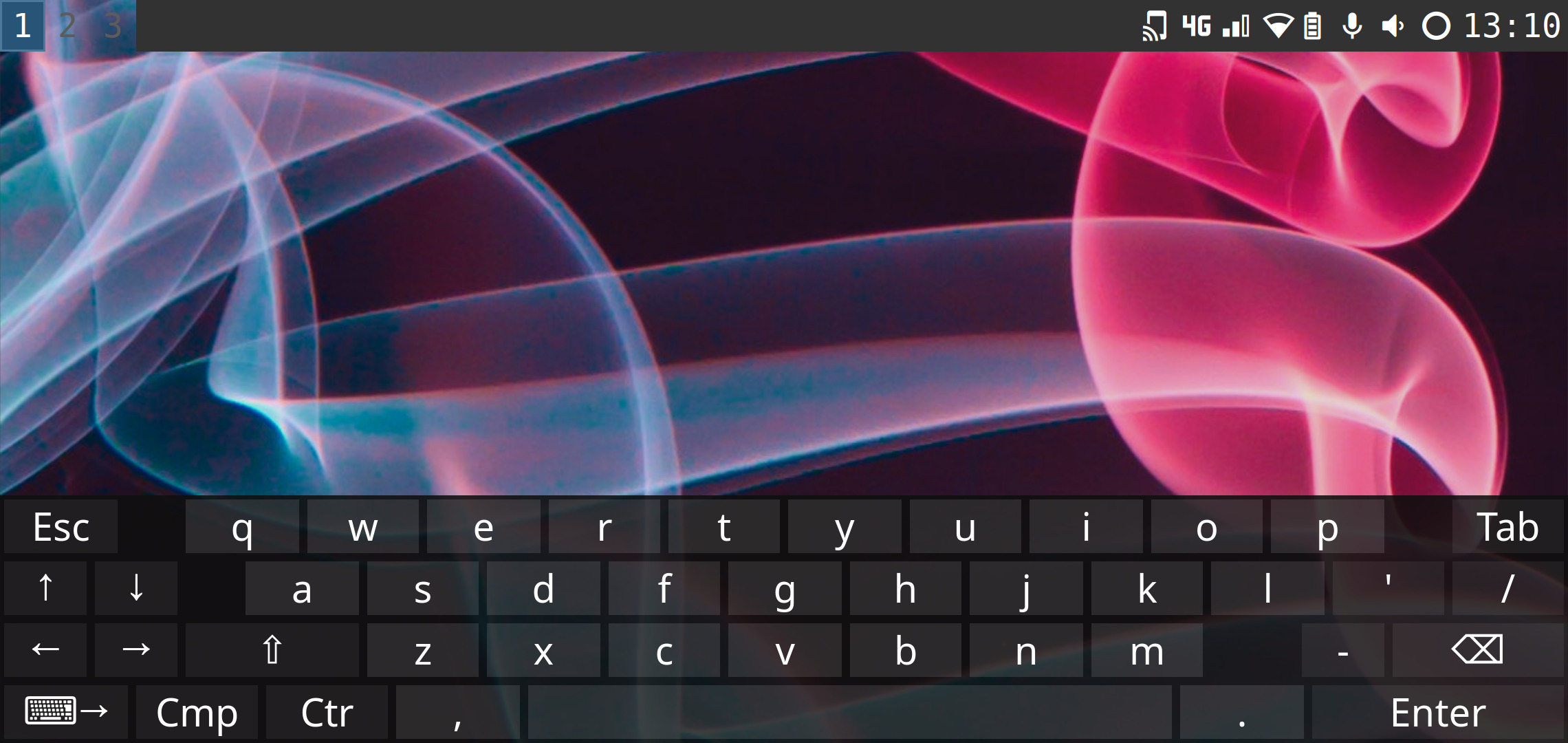This project aims to deliver a minimal but practically usable implementation of a wlroots on-screen keyboard in legible C. This will only be a keyboard, not a feedback buzzer, led blinker, or anything that requires more than what's needed to input text quickly. The end product should be a static codebase that can be patched to add new features.
- Typing, modifier locking, layout switching
- Positive visual feedback on key presses
- Custom layouts and underlying keymaps
- On-the-fly layout and keymap switching
- Custom color schemes
- Proper font drawing
- Intuitive layouts
- International layouts (cyrillic, arabic)
- Support for 'Copy' keys which are not on the keymap
- Emoji support
- Compose key for character variants (e.g. diacritics)
- Show/hide keyboard on signals (SIGUSR1 = hide, SIGUSR2 = show)
- Automatic portrait/landscape detection and subsequent layout switching
There are some areas that still need work:
- Make sure the virtual input method in wayland is working as best as it can
- Support for input method protocol in wayland, ability to respond to text fields
You'll need the following developer packages
- pangocairo
- wayland-client
- xkbcommon
Make any customizations you would like in config.def.h and run make
The default set of layouts is called mobintl (mobile international), which groups various layouts aimed at mobile devices
and also attempts to accommodate various international users. The resulting binary is called wvkbd-mobintl.
You can, however, define your own layouts by copying and and modifying layout.mobintl.h and keymap.mobintl.h
(replace mobintl for something like yourlayout). Then make your layout set using make LAYOUT=yourlayout, and
the resulting binary will be wvkbd-yourlayout
Run wvkbd-mobintl (or the binary for your custom layout set).
You can switch between the layouts/layers of the keyboard by pressing the Abc/Sym key in the bottom-left. If you only
want a subset of the available layers, you can define which wants you want and in what order you want to cycle through
them using the -l parameter. This takes takes a ordered comma separated list of
layout names that are defined in your layout set.
The keyboard can be hidden by sending it a SIGUSR1 signal and shown again by sending it SIGUSR2. This saves some
start up time and may be appropriate in some low-resource environments.
Wvkbd has an output mode -o that will echo its output to standard output. This facility can be used if users want
audio/haptic feedback, a feature explicitly out of scope for wvkbd. To achieve this, simply pipe wvkbd's output through the external tool
clickclack:
$ wvkbd-mobileintl -l simple,special,emoji -o | clickclack -V -f keypress.wav
Any contributions are welcome, please tell me what I did wrong in issues or PRs. I could also use some nice branding if that tickles your fancy.
For code contributions, all I ask for now is you run make format (requires
clang-format) before opening a PR and include as much relevant detail as
possible.
- clickclack - Audio/haptic feedback (standalone)
- Sxmo - A hackable mobile interface environment for Linux phones that adopted wvkbd as its keyboard
- svkbd - A similar project as wvkbd but for X11 rather than Wayland
- squeekboard - The virtual keyboard developed for the Librem5 (used by Phosh)


